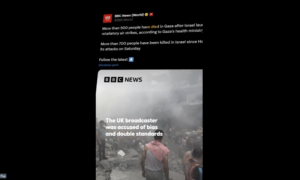Ninety percent of all violence happens in private homes. Ukrainians escaping, mostly women and children, are especially vulnerable in a foreign country, behind locked doors.
Humanitarian crises are chaotic situations. Professional organizations know these risks – but the situation attracts well-meaning voluntary helpers who act haphazardly while looking for accommodation for someone.
The resulting chaos is attractive for bad actors to take advantage of vulnerable populations. Numerous scandals in the humanitarian sector show this problem.
It’s unclear to what extent Russian military or private bad actors use cyber-warfare tactics so far. But it is possible that they will try to frustrate efforts or even target Ukrainian individuals.
We work tirelessly to ensure that every refugee finds accommodation. Make a donation. Help us to help >>>
This is why this situation is especially dangerous for the safety of our guests.
Recommendations for volunteers:
- Provide quality over quantity: better small and slow help than big and fast. Refugees are currently not dying on the streets or starving. Help and accomodation is abundantly available.
- Partner with reputable NGOs and local governments whenever possible: before you match refugees with a host, recommend them with professional options.
- Verify hosts: ID Now is a tool that provides such verification. Have them send a social media profile, and have someone manually look over their submitted information.
- Ensure host-seekers have a polish emergency number – 112. If something happens, they should have a number to call that can immediately send the police.
- IMPORTANT: Do not show host or host-seeker data in public. Many platforms do this right now. Only show contact data when there is a match.
Ukrainian refugees in Poland. Check out what we have achieved so far >>>
This is not a competition for size and speed. Let’s make sure every refuge-seeker is matched with the safest possible option and work together to ensure that. Share resources and experiences with each other, and cooperate with the local police and government institutions.
This memo was created by consulting with veteran humanitarian crisis expert Thomas von der Osten-Sacken. Thomas has experienced situations like this multiple times (e.g. Iraq, Syria, Greece / Lesbos) over his 30-year career and his activity as the CEO of wadi e.V.
Niklas Anzinger is coordinating efforts to find volunteer hosts for Ukrainians as a member of the Sandbox community. You can reach him via: niklasanzinger@gmail.com (You can also ask him for Thomas’ contact details if your organization needs his advice).
Photo: Matthias Berg, Flickr. Licence: CC BY-NC-ND 2.0.



